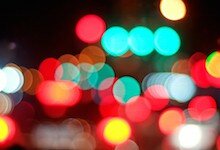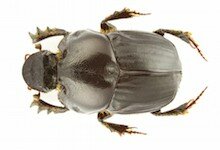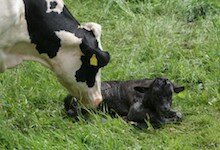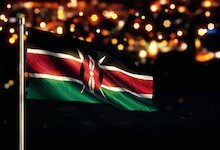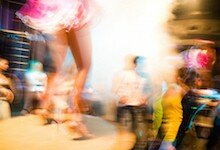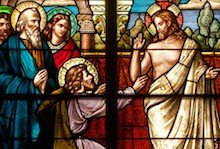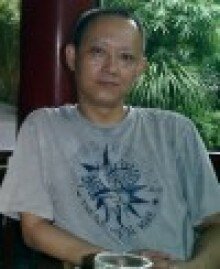
In the southwest corner of China, the grand mountains and rivers that border the Tibetan plateau are home to the Yi, an ethnic group often portrayed in the Chinese popular imagination as a fierce and defiant highland people. A down-to-earth poet caught between the Yi highlands and the Han Chinese lowlands, Jimu Langge (his Yi name) writes fluently in-between:
During the 1950s, Liangshan was in a state of isolation. It was a place able to cut itself off from the world, and precisely what it relied on to do this wasn't the high mountains but the Yi language. This was a world of Yi language. The principles of the daily life that were founded and protected by the Yi language including customs, traditions, and moral standards were completely untarnishable. It wasn't until the People's Liberation Army entered Liangshan that it finally completely opened itself to the outside world, and then the thing that connected Liangshan and the world was, of course, the Han Chinese language. I was born in the Liangshan of the 1960s, which means I lived in a world of two parallel languages.
from The Language of Dreams
Liangshan is an autonomous prefecture and the traditional home of the Yi ethnic minority in southern Sichuan, China. Jimu Langge is a member of this group from Ganluo county in Liangshan. Born in 1963, he started writing poetry at the age of twenty and gained recognition as a poet with his inclusion in the avant-garde group Not-Not in Chengdu.
Jimu Langge grew up in the Liangshan that had opened up to the outside world. Predicated by the spread of the Han Chinese language, this transition included education and greater opportunities for Yi children to access the modern, dominant culture. As a son of a government official, Jimu was squarely at the center of these intersecting and colliding cultural worlds. Although he was raised with the Yi language, he was also from an early age initiated into the Han Chinese language, and by his own account it is now his dominant language. The significance of Jimu Langge’s poetry lies in the same vein: hybridity that highlights subtle but distinct (dis)associations.
After meeting Not-Not founder Zhou Lunyou and others in Xichang (the capital of Liangshan), Jimu was drawn into and highly influenced by the avant-garde poetry scene of China’s mid-eighties. Although practicing a similarly restrained and style-less poetics of other Not-Not poets in Chengdu (Yang Li, He Xiaozhu, etc.), for Jimu, the process of language has never been just an exercise in selecting eloquent words but actually a translation between worlds and their ideas. Therefore, though situated in the Chinese language and its framework, the meanings and conceptions of his poetry stretch the language into new associations and dynamic collisions.
The collisions of Jimu’s poetry often take the form of ironic parodies that reflect the absurdity of language’s tendency to define. For instance, poems like ‘The Tiger Comes to My Side’ play on the poetics of definition: the poet becomes the tiger when it is unclear what the tiger implies. His long poem ‘Chinese Poets’ also uses this theme in its attempt to define the people and practice of ‘Chinese Poets’, which simultaneously includes and excludes Chinese poets the poet-speaker likes and dislikes.
In addition, Jimu’s poetry often reveals a specific sensitivity to the position of things and the constant inter-references of a hybrid universe. This includes his own relationship to his poetry, a Yi writing in Chinese, but also extends to the greater tensions between the Chinese nation, his ethnic group, and the world beyond. Through the powerful imagery of restless leaves and unfamiliar relations, poems like ‘Ganluo, A One-street Town’ and ‘I Think of a Mistake’ express the distance from familial places Jimu experiences.
However, a striking humor also pervades Jimu Langge’s poetry. He often uses humor to satirize the relationships between people and places. For instance in the poem ‘I Love China’, he parodies the role of the Chinese artist in the world:
I am against any large or small country
that imposes upon China
Only in art
do I not have a nationality
That is to say, only after more of China
can there be more of the fucking world
Seemingly both satirical and patriotic, ‘I Love China’ lays bare the volatile dynamics between national and world politics, especially in art. Similarly, Jimu’s poems like ‘Humility’, a biting critique of the Cultural Revolution, and ‘Old Society’ both show his ability to play on the exaggerations and collisions of China’s national history.
A local to global journey, his poetry often expresses the conflicted process of modernization for the Yi and the Chinese nation. Yet, somewhere beneath the surface of Jimu’s poetry there is often a sense of a Yi world-view informing the language:
Outside Malayida, the world is developing; humanity is advancing, including construction and environmental protection, transportation and communication industries. In their quest for happiness, people are moving at greater speeds through society. Collisions are impossible to avoid, as is competition and rivalry; rashness is also inevitable. Society is like a bed spread with enticements. Who wouldn't act rashly?
Yet, I believe that poetry has a kind of force, a force that differs from one person to the next. It can be infinitely big but also infinitely small. I read a good poem and it pleases me, moves me. When my spirit and inner-workings are rattled, it gives me peace and a sense of the benign.
I was drinking with my friends that don't write poetry. One of them, a new acquaintance (I don't know if he writes poetry or not), looked me in the face and asked, "What is a poem?" If I had said a poem is just a poem, that says nothing If I had said poetry is inside a poem, that's the alcohol talking. But if I had said that poetry is of the people, or even in the flower of the people, that sounds outrageous and it doesn't seem like normal speech at all; it’s already metaphoric, allusive, and symbolic.
While people from Xichang are keen on expressing themselves, Malayida preserves a habitual reticence. Only Malayida music, transmitted in its own natural fashion, will continue to be passed down from one generation to the next.
In this section from his preface to his recent (and only) poetry collection, The Silent Revolver, Jimu Langge outlines his perspectives on both poetry and his ethnicity. At the end of the piece, Malayida (a small village in Liangshan) as a site of Yi cultural preservation serves as the penultimate model for both people and poetry in combating the pervasive forces of development and competition. Although Jimu Langge is a poet that strives to write the meaningful words of “solitude and peace” in a “rattled” world, in the end he pales his abilities in comparison to the “long held brevity” of the Yi culture.
Bibliography
Jingqiaoqiao de zuolun (The silent revolver), Hebei jiaoyu chubanshe, 2002.
Links
http://jimulangge.bokee.com/ : the poet’s blog.


